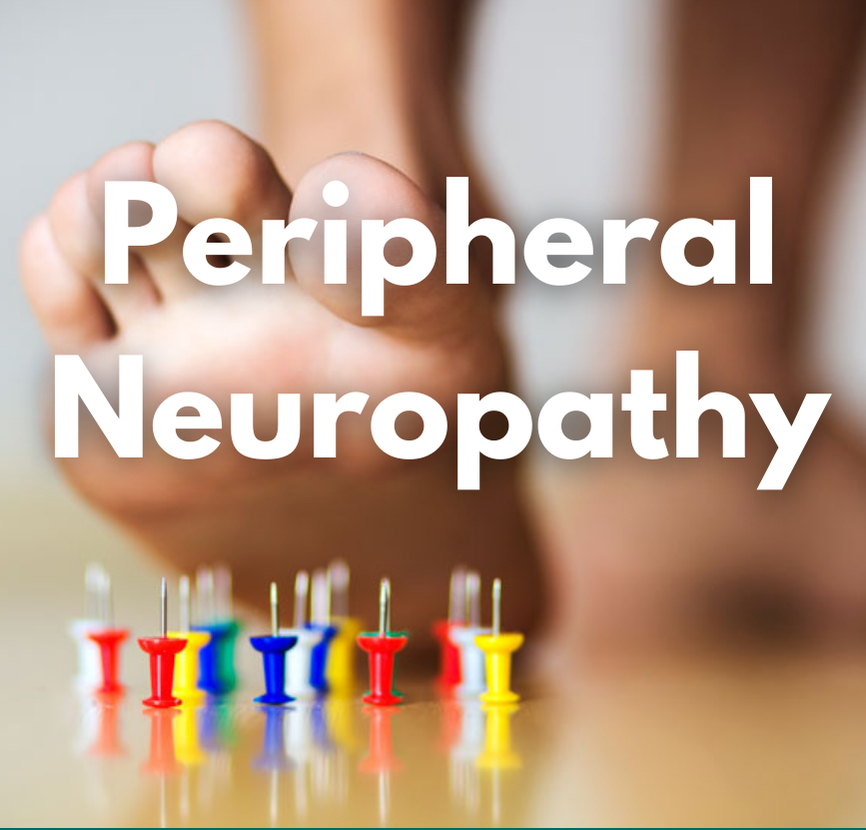|
What is it? Peripheral neuropathy refers to the many conditions that result in impairment to the peripheral nervous system (PNS). The role of the PNS, which is a vast communication network within our body, is to relay information between the central nervous system (the brain and spinal cord) and all other parts of the body. Peripheral nerves send different types of information to the central nervous system, including pain, temperature, touch, proprioception and pressure, to name a few. There are 3 main types of nerves that can be affected in the PNS: Motor – controlling movement of muscles consciously within the body.
Sensory – feeling of touch, temperature, pain, pressure. Autonomic – control of organs and their activity not under conscious control. There are a large number of causes as to why an individual may have peripheral neuropathy. These include, but are not limited to: Diabetes (affecting the blood supply to the nervous system) Physical injury/trauma (falls, medical procedures, etc.) Carpal tunnel syndrome (compression of median nerve) Smoking (affects the vasculature that supplies blood to the nerves) Auto-immune diseases (e.g. Guillain-Barre Syndrome) Chemotherapy medication Nutritional imbalance (e.g. Vitamin B12 deficiency and excess B6) When peripheral nerves are affected, this can affect one’s bodily functions, balance, walking and safety, by having an impaired nervous system. Treatment often includes medication prescribed by your doctor, as well as rehabilitation to help restore function and achieve your personal goals. In the clinic, we regularly work with those who have peripheral neuropathy and have found significant improvements in their balance, strength, pain and sensation. Comments are closed.
|
�
Categories
All
Archives
July 2023
|
|
Contact Us
Give us a call or send us an email to find out how we can help you on your rehab journey Phone 09 424 3254 [email protected] Visit us 3/55 Karepiro Drive, Stanmore Bay, Whangaparaoa |
Cancellation Policy:
Out of courtesy to your therapist, and other clients who may be waiting for an appointment, please inform us of cancellations as soon as possible.
Cancellations Charges: Short notice cancellations within 48 hours of your appointment or reschedules will incur a late cancellation fee of 60%.
For block bookings, one session will be deducted for three cancelled appointments.
Please be aware that ACC does not cover all cancelled appointments.
How to Cancel Your Appointment
If you need to cancel your appointment, please call us at 09 424 3254 between the hours of 8am – 5pm. If necessary, you may leave a detailed voicemail message. We will return your call as soon as possible.
Late Cancellations/No-Shows
A cancellation is considered late when the appointment is cancelled less than 48 hours before the appointed time. A no-show is when a patient misses an appointment without cancelling. In either case, we will charge the patient a 60% missed appointment fee.
Out of courtesy to your therapist, and other clients who may be waiting for an appointment, please inform us of cancellations as soon as possible.
Cancellations Charges: Short notice cancellations within 48 hours of your appointment or reschedules will incur a late cancellation fee of 60%.
For block bookings, one session will be deducted for three cancelled appointments.
Please be aware that ACC does not cover all cancelled appointments.
How to Cancel Your Appointment
If you need to cancel your appointment, please call us at 09 424 3254 between the hours of 8am – 5pm. If necessary, you may leave a detailed voicemail message. We will return your call as soon as possible.
Late Cancellations/No-Shows
A cancellation is considered late when the appointment is cancelled less than 48 hours before the appointed time. A no-show is when a patient misses an appointment without cancelling. In either case, we will charge the patient a 60% missed appointment fee.


 RSS Feed
RSS Feed
